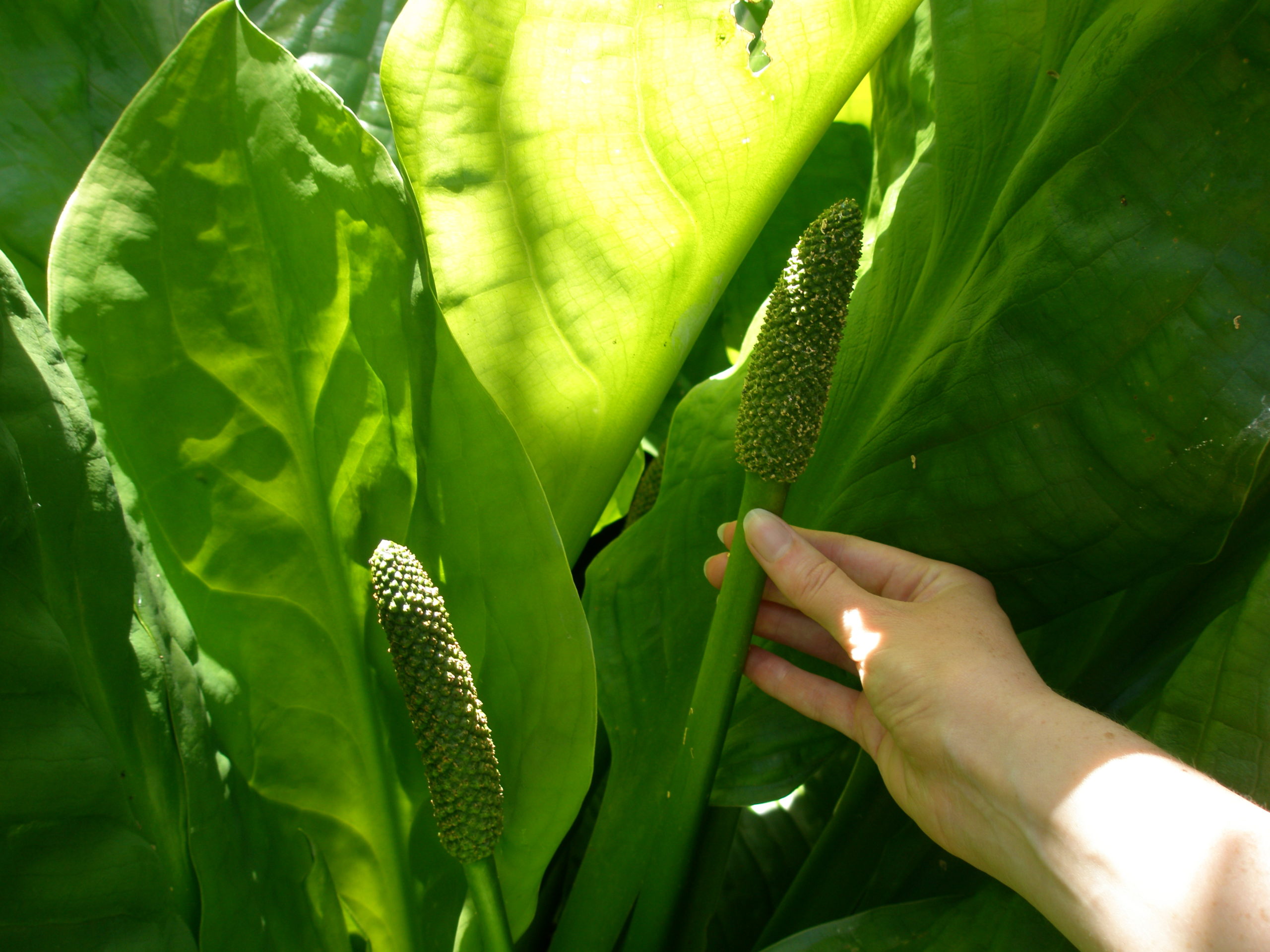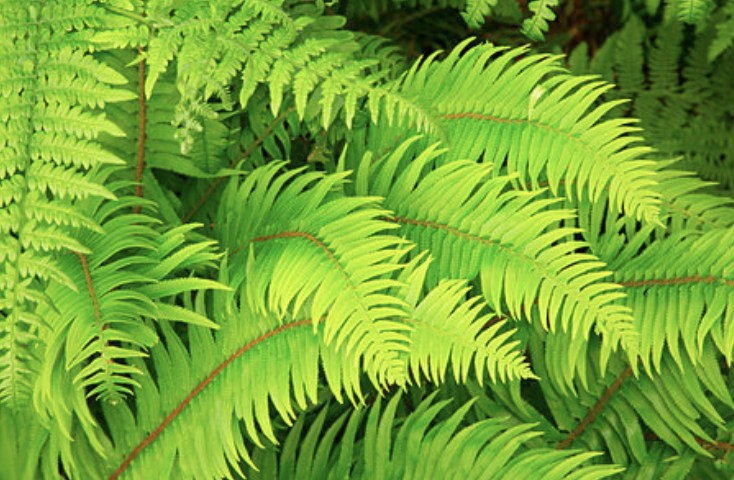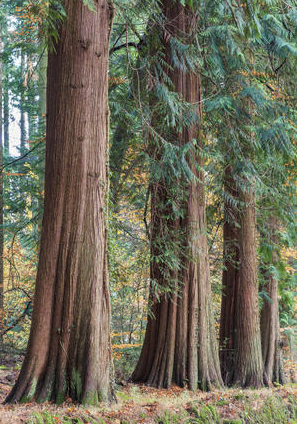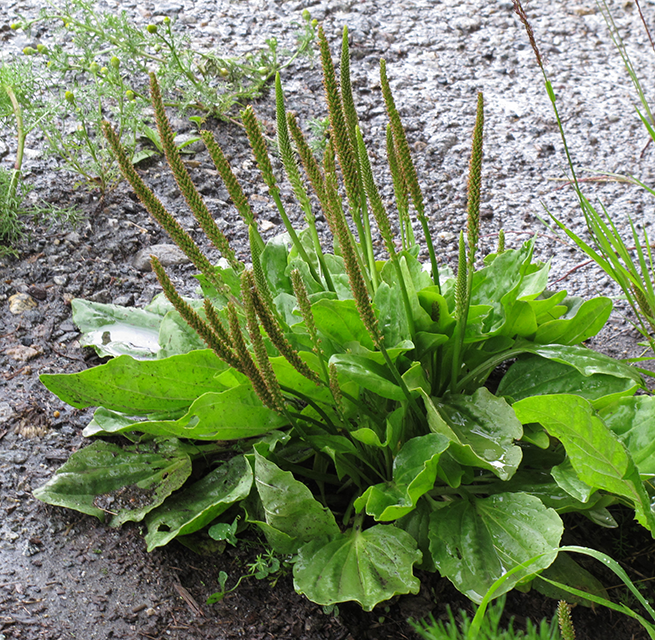- ’een’thu Marlene Tommy, tun’ni’ ’utl’ qulii’lum’.
I’m Marlene Tommy from Dugan Lake. - ’i’ nilh thunu ’imuth.
And this is my granddaughter. - mukw’ suxulhnet ’i m’uw’ ne’nuts’uw’t-hwum’ ’utl’ ’een’thu.
Every Sunday she comes to visit me. - nu stl’i’ kwunus hwuw’tsust ’u tthu hul’q’umi’num’, tthu sht’es tthu
hwulmuhw mustimuhw.
I like to teach her Hul’q’umi’num’, the ways of the First Nations People. - nusuw’ yu huy’thust ’u tthu snes tthu thuthiqut tthu ha’kw.
I speak to her about the names of the trees. - yath ’uw’ ne’nuts’uw’t-hwum’ ’utl’ ’een’thu lhunu ’imuth ni’ ’utl’ qulii’lum’.
My granddaughter is always visiting me at Dugan Lake. - nusuw’ thut-stuhw thunu ’imuth, “’ilhe nem’ ’umshasum’, nem’ ’imush.
So I said to my granddaughter, “Let’s go for a walk. - nem’ tst tse’ hwtelsh tthu shelh nem’ xwte’ ’u kwthu xatsa’.”
We’ll follow the road to the lake.” - suw’ thut-s thunu ’imuth, “’uy’, si’lu. ’uy’, ’ilhe.”
So my granddaughter said, “Good, Grandma. Good, let’s go.” - ’i wulh yu qw’iqw’ul’us, wulh kw’e’lus thu sum’shathut.
It was already springtime and the sun was warm. - suw’ ’uy’stuhw kwunus ni’ yu ’i’mush kwus ’uw’ tl’t’ehwum.
I wanted to walk in the warm weather. - kwutst yu ’i’mush wulh yu ’i’mush kwun’atul’ thunu ’imuth ’i’ wulh lumnuhwus tthu suqeen.
We were walking along, me and my granddaughter, and she saw a bracken fern. - wulh ptem’utham’shus, “stem ’a’lu tthey’, si’lu? stem ’a’lu?”
She asked me, “What is that, Grandma? What is that?” - nusuw’ yuthust thunu ’imuth, “nilh p’e’ suqeen tthey’, ’im. suq’een’.”
And I told my granddaughter, “That’s a bracken fern, granddaughter. Bracken fern.”
- suw’ hwi’ ptem’, “stem kwu’elh kw’u ni’ shhwa’kwushewut, ’u si’lu?”
And she asked, “What is that used for, Grandma?” - nusuw’ huy’thust, “nilh p’e’ kwu ni’ ha’kwushut ’u kwutst kw’ikw’uts’ ‘u tthu stseelhtun.”
And so I told her, “That’s what we use when we’re cutting up salmon.” - ni’ tst ts’e’t ’u tthu lutem.
We set it on the table. - nilh swe’s tthu stishum’ kwus ’uwus hilum ’u tthu stseelhum.
It’s for the slime that falls out of the salmon. - “ha’ ch tse’ qul’et tstseelhtun, si’lu, ’i’ m’i tsun tse’ ts’ewuthamu.
“When you next have a salmon, Grandma, I want to help you. - nu stl’li’ kwunus tul’nuhw.”
I want to learn how.” - “ooo, nan ’uw’ ’uy’, ’imiye’.
“Oh, good, Granddaughter. - ha’ tsun tse’ kwunnuhw kw’ qul’et stseelhtun ’i’ ’almutsuthamu tsun tse’ kwun’s m’i ts’ewutham’sh.”
When I have salmon again, I will wait for you to help me.” - ’i tst ’uw’ yu ’i’mush ’ul’ ’i’ tsun ts’its’elhum’ut tthu sqw’uqw’ulesh t’it’ulum’.
We were walking along listening to the birds singing. - nan ’uw’ ’uy’ skweyul.
It was a very nice day. - “aa, si’lu. stem kws snes tu’i thqet ni’ ’u tthu hwulmuhwqun?”
“Oh, Grandma. What do you call that tree in Hul’q’umi’num’?” - nusuw’ yuthust thunu ’imuth, “nilh p’e’ xut’ustum’ xpey’ulhp ’imuth, xpey’ulhp.”
I said to my granddaughter, “It’s called a cedar tree, Granddaughter. Cedar.”
- “aa, si’lu. nutsim’ kwu’elh shus ’uwu te’ ’u tthu kw’uluw’s, na.a.a’ut nem’ kw’i’ tus ’u tthu tsitsulh?”
“Oh, Grandma. Why doesn’t the bark go all the way to the top?” - “oo, tthey’ ni’ me’shum tthu kw’uluw’s nilh ni’ ha’kwushum’, ha’kwushus tthu hwulmuhw.
“Oh, the bark is taken off, and the people use it. - oo, ’imiye’, tthun’ yasa’qw ni’ ha’kwushuhw, nilh tun’ni’ ’u tthey’ thqet.
Oh, Granddaughter, the hat that you’re wearing, it came from that tree - sluwi’ nilh ni’ thuytum xte’um ’u tthu yasa’qw.”
The bark is what’s used to make your hat.” - ’i tst hwuni’ yu ’i’mush ’i’ wulh hukwnuhwus tthu ’uy’eluqup.
We walked further along, and she smelt a beautiful smell. - suw’ wulh ptem’s, “stem kwu’elh tthey’, ’u si’lu?”
And then she asked, “What is that, Grandma?” - nusuw’ huy’thust, “nilh p’e’ xut’ustum’ t’a’hwulhp tthey’.
I told her, “That’s what’s called a balsam tree.
- nilh p’e’ ni’ ha’kwushut tthu sts’ushtutsusth kwun’s shakw’um, nilh
kwus xep’kw’um’ tthun’ stth’am’.
We use its branches when we are bathing, when our bones are aching. - nilh swe’s slhexun’s.”
That’s the medicine for it.” - “aa, si’lu. niihw sthuthi’ ’uw’ hakwusheen’ tthey’ t’a’hwulhp, tthu sts’ushtutsus, ’uw’ niin’ tse’ shakw’um?
“Oh, Grandma. When I bath, would it be ok for me to use that balsam, its leaves, when I will bathe? - xwum ’u tsun ’i’ hakwush?”
Can I use it?” - “ni’ p’uw’ ’uy’, ’imiye’ ’i’ niihw hakwush kwun’s shakw’um.
“Ok, Granddaughter. You can use it when you bathe. - ’i’ nilh ’uw’ ’uy’ ’utl’ nuwu, ’i’ ’ni’ ch tse’ hwu ’uy’eluqup.”
And it will be good for you.” - ni’ tst tl’uw’ qul’et nem’ ’i’mush.
We went walking along again. - ’i’ tst tuw’ hwuni’ yu ’i’mush ’i’ ’i tst wulh huqwnuhw kw’ nuts’eluqup.
And we arrived a little further and then we smelled something strange. - tl’lim’ ’uw’ kw’am’kw’um’eluqup kwus nuts’eluqup.
It was a really strong, strange smell. - wulh qw’ulhnuhwus thunu ’imuth, “aa, si’lu. stem kwu’elh tthey’ hay ’ul’ nuts’eluqup.”
My granddaughter complained, “Oh, Grandma. What is that smell?” - “aa, ’imiye’. nilh p’e’ xut’ustum’ ts’akw’a’.
“Oh, Granddaughter. That’s what is called skunk cabbage.


- ’i’ ’uw’ hay ’ul’ kwus yu qw’iqw’ul’us ’i’ hay ’ul’ hwu kw’am’kw’um’ nuts’eluqup, xut’ustum’ ts’akw’a’.”
It’s only in springtime that it has that strong, stinky smell, and it’s called ts’akw’a’.” - “aa, si’lu. lemut lhu! tl’lim’ ’uw’ hay ’ul’ thithu tthu sts’alha’s.”
“Oh, Grandma. Look! Its leaves are very big.” - “aa, ’imiye’. nilh p’e’ ni’ hakwushut ’u kwun’s stl’i’ kwun’s qa’qa’t ’u tthu qa’.
“Oh, Granddaughter, we use it when you want to drink water. - ni’ ch thuyt, thuyt susuw’ hwu st’eekw’ lupat.”
You make it into a cup.” - “aa, si’lu. nu stl’i’ p’e’ kwunus thuyt kw’ lupat.”
“Oh, Grandma, I want to make a cup.” - “’uy’, ’imiye’. m’i tst tse’ hwu’alum’ niis tse’ wulh hwu ’uwu niis nuts’eluqup.”
“Ok, Granddaughter. We’ll come back when it’s not so stinky.” - ’i’ ni’ tst nem’ ’uw’ yu ’i’mush nem’ qul’et ’imush ’i’ ni’ tst ’uw’ wulh tus ’u kwthu xatsa’.
We walked along a little further and we reached the lake. - sutst ’uw’ ’umut qewum’, wulh qwal thunu ’imuth,
We set down to rest and my granddaughter said, - “niihw thuthi’ ’uw’ wenshun kw’ smeent qwsut ’u tthu qa’?”
“Can we throw some rocks in the water?” - So we sat and we threw stones, and they went kaploop and made ripples in the water.
- “aa, ’im’. ni’ p’uw’ wulh tl’am’ kwus nem’ tst hwu’alum’ t’akw’.
“Oh, Granddaughter. That’s enough and we should go home. - ’ilhe nem’ t’akw’.”
Let’s go home.” - kwutst wulh huye’ taant tthu ni’ shni’ tst, ’i’ wulh ts’uyulh thunu ’imuth, ts’iitus tthu ts’akw’a’.
As we were leaving that place, my granddaughter thanked the skunk cabbage. - “hey’ewulh, ts’akw’a’. nem’ tst wulh t’akw’.
“Goodbye, skunk cabbage. We’re now going home. - m’i tse’ tst ’uw’ hwu’alum lemuthamu.”
We’ll see you again.” - ’i tst wulh yu ’i’mush ’i’ wulh lumnuhw tthu t’a’hwulhp.
We were walking along again and saw the balsam. - hwi’ nilh ni’ ts’iitus, “hey’ewulh, t’a’hwulhp.
She thanked it, “Goodbye, balsam. - ’uw’ lumnamu tsun tse’ ’uw’ niin’ hakwushamu kwunus shakw’um.”
I’ll see you again when I use you to bathe.” - ’i’ ni’ tst ’uw’ thay’ithut wulh lumnuhwus tthu xpey’ulhp.
And further along, we saw the cedar. - tl’uw’ wulh ts’iitus, “hay ch q’a’, xpey’ulhp. hay ch q’a’ ’u tthunu yasa’qw.
Again, she thanked it, “Thank you, cedar. Thank you for my hat. - hey’ewulh, si’em’, hey’ewulh.”
Goodbye, honoured one, goodbye.” - sutst ’uw’ thay’ithut ’i’ wulh lumnuhw tthu suqeen sus tl’uw’ ts’iitus.
We continued and saw the bracken fern and she also thanked it. - “hey’ewulh, suqeen, hey’ewulh.
“Goodbye, bracken fern, goodbye. - uw’ lumnamu tsun tse’ ’uw’ niin’ tse’ hakwushamu ’u kwthu stseelhtun.
I will see you and will use you with the salmon. - hey’ewulh, si’em’.”
Goodbye, honoured one.” - kwutst wulh hun’umut, sutst ’uw’ ’umut ‘i’ sutst ’uw’ lhti, ts’uhwlhne’num’.
When we got home, we sat down and we had tea, just a snack. - nan ’uw’ ’uy’ nu shqwaluwun ’u thunu ’imuth kwus hay ’ul’ ’uy’st-hwus kws shtatul’stuhws tthu hul’q’umi’num’ ’u tthuw’ mukw’ stem tthu ni’ sht’es kwus ha’kw, ’i’ nilh yu sputums.
I really liked my granddaughter for really wanting to know about Hul’q’umi’num’ and how we do everything and her recognizing [the plants and everything]. - ni’ kwu’elh kwus ’uy’ nu shqwaluwun, hay ch q’a’, ’imiye’.
For my good thoughts, thank you, Granddaughter. - mukw’ suxulhnet kwsus m’i ne’nuts’uw’t-hwum’ thunu ’imuth, ’i’ ni’ tst nem’ ’i’mushasum’.
Every Sunday when my granddaughter came visiting, we went walking. - i’ hay ’ul’ ’uy’ nu shqwaluwun kwus yu ta’tul’utus tthu s-hwulmuhwa’lh snuw’uyulh.
And I really enjoyed teaching her First Nations cultural traditions. - ’uy’ shqwaluwuntst.
We were happy. - qux ni’ tul’nuhwus ’u tthu thuthiqut ’i’ tthu ts’its’usum kwutst nem’ ’imush, susuw’ yu putum’.
She learned a lot about the trees and the plants when we were walking and she was asking. - nusnuw’ huy’thust ’u tthu sht’es kwus ha’kw.
And I told her what they were used for. - ’i’ ni’ kwu’elh ’uy’ nu shqwaluwun kwus tul’nuhwus tthu shwulmuhwa’lh shhwa’kws tthu ts’its’usum’.
And I was happy that she learned the First Nations teachings about growing things. - nilh kwu’elh ni’ shni’s tthu ’usup’ tthunu sqwul’qwul’.
And that’s where my story ends. - ni’ hay. hay tseep q’a’.
The end. Thank you.
Thanks to Donna Gerdts for transcribing and editing. This version July 14, 2019.



